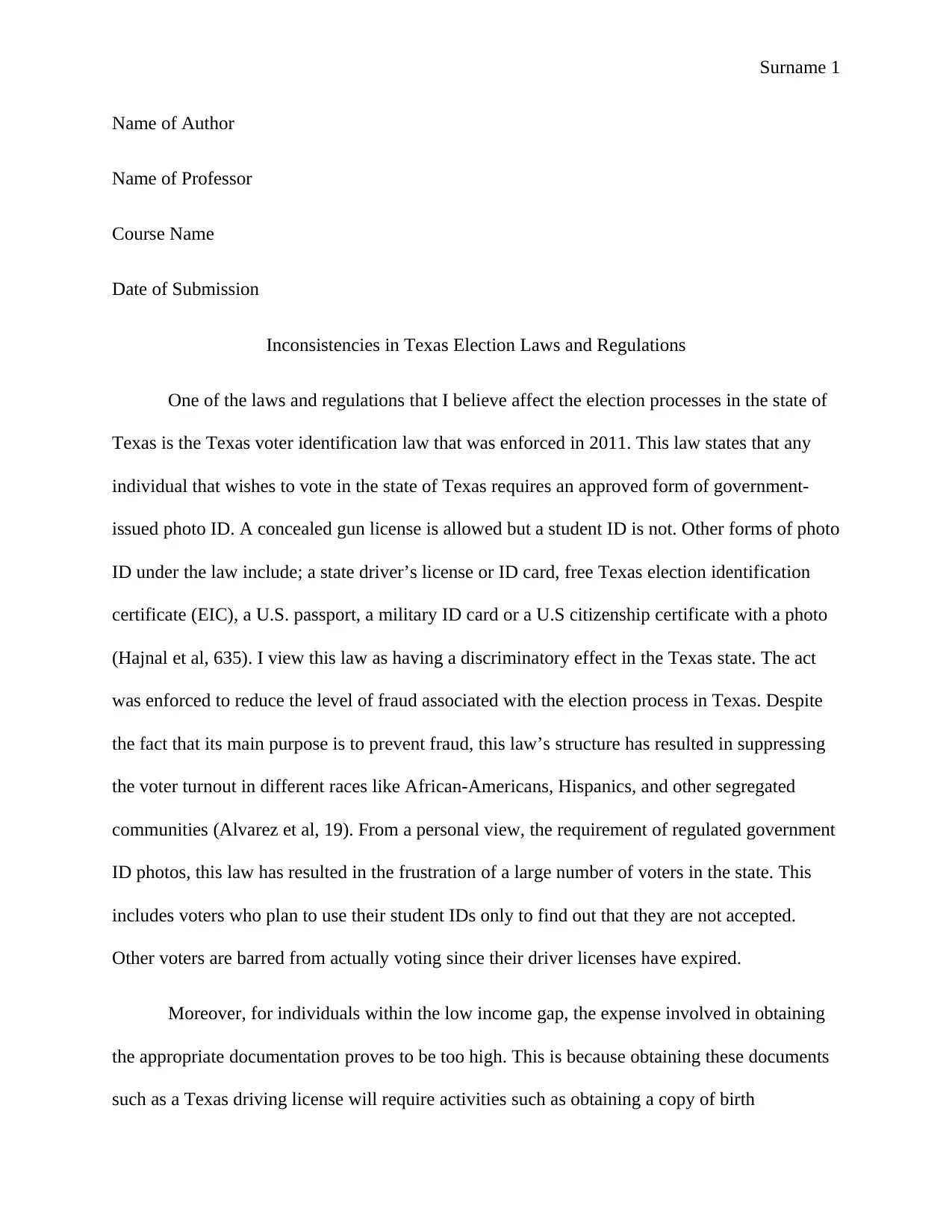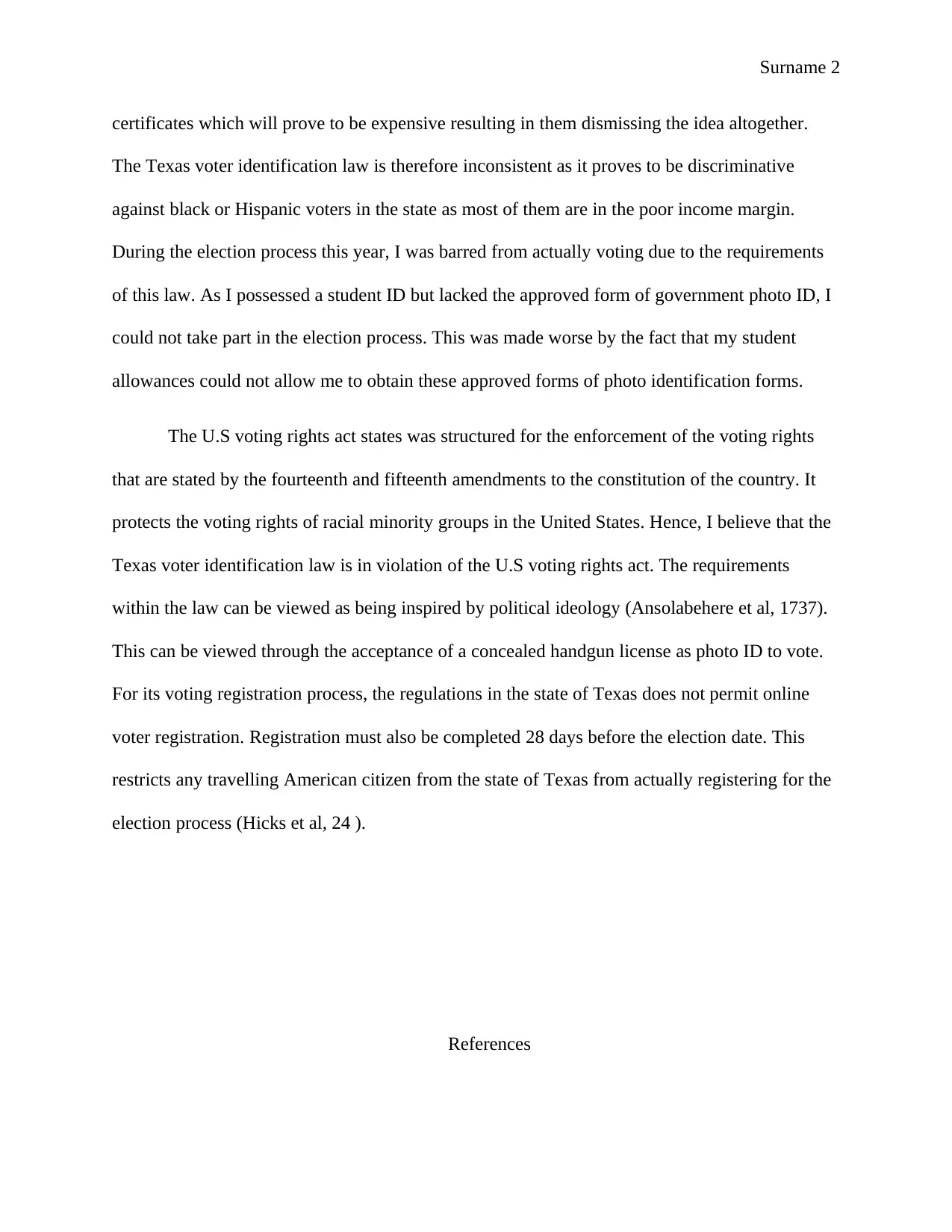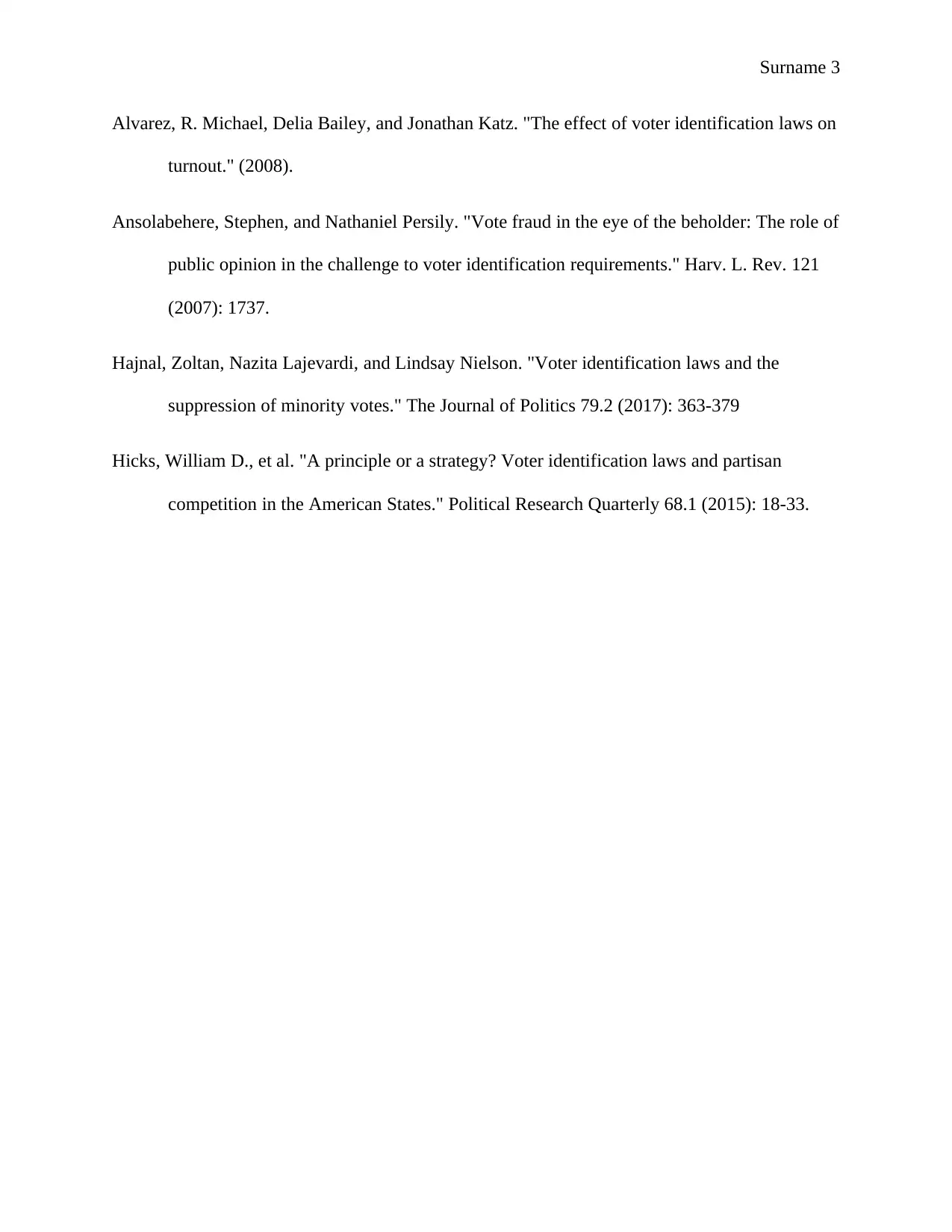Texas Election Laws: An Analysis of Inconsistencies and Regulations
VerifiedAdded on 2023/06/11
|3
|755
|410
Essay
AI Summary
This essay critically examines the inconsistencies within Texas election laws and regulations, focusing primarily on the Texas voter identification law enforced in 2011. The author argues that the law, while intended to prevent voter fraud, disproportionately affects minority groups like African-Americans and Hispanics due to its strict photo ID requirements, which include a concealed gun license but exclude student IDs. The personal experience of being barred from voting due to lacking the required ID is shared, highlighting the law's discriminatory impact and potential violation of the U.S. Voting Rights Act. Additionally, the essay points out the restrictions on online voter registration and the 28-day registration deadline as further impediments to voter participation, particularly for traveling citizens. The acceptance of a concealed handgun license as a valid ID is viewed as politically motivated, raising concerns about the law's fairness and equity.
1 out of 3






![[object Object]](/_next/static/media/star-bottom.7253800d.svg)